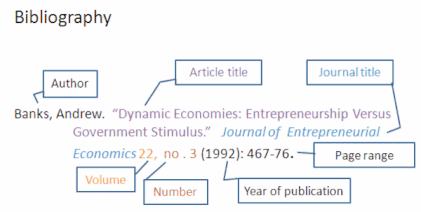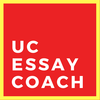 Rachel McCombie, a graduate of St John’s College, Oxford, shares actionable tips on taking your essays from “Good” to “Outstanding.” For ambitious students, essays are a chance to showcase academic flair, demonstrate original thinking and impress with advanced written English skills. The best students relish the challenge of writing essays because they’re a chance to exercise academic research skills and construct interesting arguments. Essays allow you to demonstrate your knowledge, understanding and intelligence in a creative and relatively unrestricted way – provided you keep within the word count! But when lots of other people are answering the same essay question as you, how do you make yours stand out from the crowd? In this article, we’re going to show you the secret of writing a truly brilliant essay. What are essays actually for?Essays test a wide variety of skills, including your ability to absorb and analyse information. efore we get into the nitty gritty of how to write an outstanding essay, we need to go right back to basics and think about what essays are actually designed to test. Only by understanding the purpose of an essay can you really begin to understand what it is that tutors are looking for when they read your work. No matter what the academic level of the student is, essays are designed to test many things: – Knowledge – fundamentally, essays test and help consolidate what you’ve read and learned, making them an important part of the learning process, particularly for humanities subjects. – Comprehension – they test your ability to make sense of and clearly explain complex concepts and issues. – They test your ability to understand the question and produce a considered response to it. – They evaluate your ability to absorb and condense information from a variety of sources, which will probably mean covering a lot of material in a short space of time; this necessitates appraisal of which bits of material are relevant and which are not. – They test your ability to write a balanced and coherent argument that considers a number of points of view. – They showcase your level of written English skills. – They even put your time management to the test – essays are a part of your workload that must be planned, prioritised and delivered to a high standard, to deadline. Characteristics of the perfect essay Now that we know why we’re asked to write essays, what are the characteristics that define the essays that impress? The tutors marking your essays may have their own preferences and things they look for in outstanding essays, but let’s take a look at a few of the irrefutable traits of the best. A good essay can be derivative; a brilliant essay needs to be original. Original thinkingThe hallmark of the truly brilliant essay is original thinking. That doesn’t have to mean coming up with an entirely new theory; most of, if not all, the topics you’ll be studying at GCSE, A-level or even undergraduate level have been thought about in so much depth and by so many people that virtually every possible angle will have been thought of already. But what it does mean is that the essay stands out from those of other students in that it goes beyond the obvious and takes an original approach – perhaps approaching the topic from a different angle, coming up with a different hypothesis from what you’ve been discussing in class, or introducing new evidence and intelligent insights from material not included on the reading list. Solid, in-depth knowledge and understandingIt goes without saying that the brilliant essay should demonstrate a strong knowledge of the facts, and not just knowledge but sound comprehension of the concepts or issues being discussed and why they matter. The perfect essay demonstrates an ability to deploy relevant facts and use them to form the basis of an argument or hypothesis. It covers a wide range of material and considers every point of view, confidently making use of and quoting from a variety of sources. Clear structure with intelligent debateThe perfect essay provides a coherent discussion of both sides of the story, developing a balanced argument throughout, and with a conclusion that weighs up the evidence you’ve covered and perhaps provides your own intelligent opinion on how the topic should be interpreted based on the evidence covered. No superfluous informationEverything written in the perfect essay serves a purpose – to inform and persuade. There’s no rambling or going off at tangents – it sticks to the point and doesn’t waste the reader’s time. This goes back to our earlier point about sorting the relevant facts from the irrelevant material; including material that isn’t relevant shows that you’ve not quite grasped the real heart of the matter. Exceptional EnglishThe words in the perfect essay flow effortlessly, and the reader feels in safe hands. Sentences need never be read more than once to be understood, and each follows logically on from the next, with no random jumping about from topic to topic from one paragraph to the next. Spelling and grammar are flawless, with no careless typos. So how do you go about writing this mythical Perfect Essay? Read on to find out! Put in extra background workCommitted students always read beyond what the reading list tells them to read. Guaranteed to impress, wide reading gives you deeper knowledge than your peers and gives you the extra knowledge and insights you need to make your essay stand out. If you’re studying English, for example, don’t just read the set text! Here are some ideas to widen your reading and give you a good range of impressive quotes to include in your essay: – Other works by the same author – how do they compare with your set text? – Works by contemporary authors – does your set text fit into a wider movement, or is it very different from what was being written at the time? – Works by the author’s predecessors – what works inspired the author of your set text? How do you see them shining through in the text you’re studying, and how have they been developed? – Literary criticism – gauge the range of opinions about your set text by reading what the literary critics have to say. Whose opinion do you most agree with, and why? – Background history – so that you can appreciate and refer to the context in which the author was writing (we’ll come back to this last point a little later). It sounds like a lot of extra work, but you don’t necessarily have to read everything in full. It’s fine to dip into these other resources providing you don’t inadvertently take points out of context. Know what you want to say before you start writing You’re probably sick of hearing this particular piece of advice, but it’s important to start out with a clear idea in your mind of what you want to say in your essay and how you will structure your arguments. The easiest way to do this is to write an essay plan. This needn’t be a big deal, or time-consuming; all you need to do is to open a new document on your computer, type out the ideas you want to cover and drag and drop them into a logical order. From there, you simply start typing your essay directly into the plan itself. Your essay should include an introduction, a series of paragraphs that develop an argument rather than just jumping from topic to topic, and a conclusion that weighs up the evidence. Answer the question you’ve been set, not the question you want to answer A common problem with students’ responses to essays is that rather than answering the question they’ve been set, they try to mould the question to what they’d prefer to write about, because that’s what they feel most comfortable with. Be very careful not to do this! You could end up writing a brilliant essay, but if didn’t actually answer the question then it’s not going to be well received by the person marking it. Give a balanced argument… Good essays give both sides of an argument, presenting information impartially and considering multiple points of view. One-sided arguments won’t impress, as you need to show that you’ve thought about the evidence comprehensively. …but your opinion and interpretation matter tooShow that you’ve made your own mind up based on your weighing up of the evidence. This shows that you’re not just hiding behind what other people say about the topic, but that you’ve had the independence of mind to form your own intelligent opinion about it. Quote liberallyUse quotations from academic works and sources to back up points you want to make. Doing so strengthens your argument by providing evidence for your statements, as well as demonstrating that you’ve read widely around your subject. However, don’t go too far and write an essay that’s essentially just a list of what other people say about the subject. Quoting too much suggests that you don’t have the confidence or knowledge to explain things in your own words, so have to hide behind those of other people. Make your own mind up about what you’re writing about – as already mentioned, it’s fine to state your own opinion if you’ve considered the arguments and presented the evidence. Context matters Understanding the religious and political context of the times in which Blake wrote is essential to understanding his writing and art. As we’ve already touched on, if you can demonstrate knowledge of the context of the subject you’re writing about, this will show that you’ve considered possible historical influences that may have shaped a work or issue. This shows that you haven’t simply taken the essay question at face value and demonstrates your ability to think beyond the obvious. An ability to look at the wider picture marks you out as an exceptional student, as many people can’t see the wood for the trees and have a very narrow focus when it comes to writing essays. If you’re an English student, for instance, an author’s work should be considered not in isolation but in the context of the historical events and thinking that helped define the period in which the author was writing. You can’t write about Blake’s poetry without some knowledge and discussion of background events such as the Industrial Revolution, and the development of the Romantic movement as a whole. Include images and diagrams You know what they say – a picture speaks a thousand words. What matters in an essay is effective and persuasive communication, and if a picture or diagram will help support a point you’re making, include it. As well as helping to communicate, visuals also make your essay more enjoyable to read for the person marking it – and if they enjoy reading it, the chances are you’ll get better marks! Don’t forget to ensure that you include credits for any images and diagrams you include. Use full academic citations and a bibliography Show you mean business by including a full set of academic citations, with a bibliography at the end, even if you haven’t been told to. The great thing about this is that it not only makes you look organised and scholarly, but it also gives you the opportunity to show off just how many extra texts you’ve studied to produce your masterpiece of an essay! Make use of the footnote feature in your word processor and include citations at the bottom of each page, with a main bibliography at the end of the essay. There are different accepted forms for citing an academic reference, but the main thing to remember is to pick one format and be consistent. Typically the citation will include the title and author of the work, the date of publication and the page number(s) of the point or quotation you’re referring to. Here’s an example: 1. Curta, F. (2007) – “Some remarks on ethnicity in medieval archaeology” in Early Medieval Europe 15 (2), pp. 159-185 ProofreadThis much editing is a good thing; it should mean you’ve proofread thoroughly and picked up on any mistakes. Read more www.topadmit.com Before you ask, no, a spell check isn’t good enough! How many times have you typed “form” instead of “from”? That’s just one of a huge number of errors that spell check would simply miss. Your English should be impeccable if you want to be taken seriously, and that means clear and intelligent sentence structures, no misplaced apostrophes, no typos and no grammar crimes. Include your name at the top of each page of your essay, and number the pages. Also, make sure you use a font that’s easy to read, such as Times New Roman or Arial. The person marking your essay won’t appreciate having to struggle through reading a fancy Gothic font, even if it does happen to match the Gothic literature you’re studying! Meet the deadlineYou don’t need us to tell you that, but for the sake of being comprehensive, we’re including it anyway. You could write the best essay ever, but if you deliver it late, it won’t be looked upon favourably! Don’t leave writing your essay until the last minute – start writing with plenty of time to spare, and ideally leave time to sleep on it before you submit it. Allowing time for it to sink in may result in you having a sudden brilliant revelation that you want to include.
So there we have it – everything you need to know in order to write an essay to impress. If you have any further great tips to add, feel free to share them in the comments below! Source: www.oxford-royale.co.uk
0 Comments
Pick the 4 Best UC Personal Insight Questions for YOU!
If you’re applying to any of the University of California schools, you need to write four short essays. To start, read through all eight of the Personal Insight Questions you have to choose from. (Find specific ideas and strategies for each of the 8 new Personal Insight Questions at the bottom of this post!) The goal is to write four short essays that as a whole will provide the UC admissions deciders with a picture of what makes you unique and special—and help set you apart from the competition. Think of each short piece (no longer than 350 each) as a lens for them to see and understand different parts of you. Also, keep in mind how these four pieces fit together to showcase your character and personality as a whole. Each short piece for your Personal Insight Questions should feature an interesting topic on its own. And all four topics should complement each other to paint a varied and balanced picture. In effect, these four short essays will serve as your one personal statement, which colleges and universities use to help decide if you will be a fit at their institution. The best ones are engaging (especially at the start), meaningful and memorable. Here are some strategies, tips and ideas on how to pull this off and ace your Personal Insight Questions: ONE Read all eight questions first. Then read them again. The UC Admissions Department has worked hard to provide you many tips and brainstorming ideas to help you respond to their Personal Insight Questions. Make sure to use them. There’s no better way to learn what they want from you, and how to give it to them. Start with the Personal Insight Questions and related instructions, then read about each prompt on the PDF writing worksheet, and also check out their Writing Tips, especially the tips on Avoiding Common Mistakes in sidebar box (below). It can be overwhelming, but they cover everything. TWO Note which ones you like the best right off the top, and take notes of any ideas that pop out on your first read. THREE For each prompt, figure out what it wants you to write about, and then brainstorm specific examples from real-life to illustrate your topic. This will make sure each mini-essay has a clear topic and focus, and isn’t too general and dull. FOUR Pick your favorite prompt and write it out. It doesn’t have to be perfect. That’s a great starting point, since you will see that these aren’t that hard and embolden you to move to the next. FIVE As you get ideas for the different prompts, start to think about how your topics will work together. Make sure your topics don’t overlap and that you highlight something distinctly different about yourself in each essay. SIX Look for topics that showcase parts of you or your experiences and accomplishments that admissions officers would not learn about in other parts of your application. Use those! SEVEN Let yourself write in different styles and tones with these essays. Some might be more serious and others lighter in nature. That’s a good way to add variety and interest to your total essay package. EIGHT Even though these are shorter essays, you still need to make them interesting to read, especially at the start. Make sure not to simply answer directly each question. For example, don’t start your essay for Prompt 6 (about your favorite subject) with something like: “My favorite academic subject is math. It has influenced me in many ways…” Instead, think of your favorite subject, and then brainstorm what first inspired you or excited you about it, and start with that specific example of the “time.” Or start with a specific example of “a time” you were challenged in that subject, and why you then got hooked on it. NINE Since there are four separate essays, consider taking more of a risk with at least one of the essays. Think a little out of the box for your topic idea, or use a more creative writing style or approach. TEN Even short essays can be dull. One of the best ways to inject interest is to think of some type of problem that relates to your topic, whether it’s leadership, creativity, talent, skill, favorite subjects or volunteer work. Start by relating that specific problematic “time” or incident and go from there. ELEVEN Consider starting with the last of the Personal Insight Questions, Prompt 8, about what “sets you apart.” It is the most open-ended, and brainstorming for topic ideas can spark ideas for the other UC prompts, or even prompts for other longer essays, such as The Common Application or Coalition main essay. (In fact, you can use any or all of the 8 UC prompts to inspire topic ideas for your other required essays!) TWELVE If you faced some type of hardship in your life or background, strongly consider writing one of your essays about Personal Insight Question 5. This is your chance to show the UC what obstacles or barriers you have overcome to achieve your current accomplishments. It makes a big difference when they understand how far you have come! THIRTEEN If you are considering writing about Personal Insight Questions Prompt 4 and your educational experiences, notice that it’s really two separate questions asking about either an education opportunity or an educational barrier. Don’t try to answer both questions in your one essay. Pick one or the other to make sure you have a focused essay. FOURTEEN The best way to avoid a dull essay is to look for ways to “show” about your point instead of just “tell” about it. (Showing uses examples; telling explains.) For example, for Prompt 3 (about a talent or skill), instead of explaining how and why you are great at the piano, think of “a time” or moment that you faced some type of challenge involving your piano playing and start with that. Don’t just tell (explain) how you got good at it and how good you are. That would not go over well. Give specific examples so the readers can see for themselves. This “Show First” approach applies to almost all eight prompts. FIFTEEN Every student works differently when it comes to thinking and writing. Some might like to pick the four that appeal to them and crank out four, rough short essays, and then go back and see how they fit together, and edit and change them to produce a strong mix. Others might want to start with the one they feel the strongest about, polish it up and then go onto the second and do the same. No matter what your style, at some point, read your four essays to look for overlap and make sure you have diversity and balance. SIXTEEN Remember that the UC is weighing all four essays equally. So don’t put all your energy into just one or even two of the essays. Make sure they can each stand alone as interesting and complete essays about one main point. SEVENTEEN The word limit is 350 for each Personal Insight Questions essay. There’s no minimum. I would make sure to write at least 250 for each essay, and best to shoot for 300-350 to take advantage of the space. Why waste a single word? (The total word count is 1,400) EIGHTEEN I would write your essays on a Word doc or by hand, and then transfer the final essays to the UC application only when you are finished. Don’t include the entire prompt; just the number, such as “Prompt 3.” NINETEEN Consider how to order your Personal Insight Questions essays. You could go in the order of the numbers of the ones you wrote about. My opinion, however, would be to put your strongest (most engaging and interesting) essay at the top, and work down by variety and strength from there. Don’t stress about this; just something to try. TWENTY Write these short essays as you would a longer personal essay. Use the first person (“I” and “me” and “my” and “us.” Avoid “you”!). Do not simply list accomplishments, achievements, awards and work. Avoid overdone or cliche topics. Seek feedback from a trusted person. Proofread closely before submitting. TWENTY ONE This might be the best for last: One way to approach these essays strategically would be to first write down the activities, accomplishments, personal qualities, core values, meaningful experiences and other aspects of yourself that you want to showcase to the UCs. Then scroll through the 8 Personal Insight Questions and match up which prompts would best showcase these features in your essays. That way, you are in command of shaping the picture of yourself that you want to show the UCs, instead of randomly writing essays to answer the prompts. CONGRATULATIONS! If you actually read all these 21 tips, then you are obviously a serious student and someone who does their homework. Now, take a deep breath and do your best not to over-stress on these. These four essays will not make or break your chance at a UC school. They are just one piece of your application. Give them your best shot. Keep everything in perspective. You are already ahead of the pack and will land in an amazing school! One of the best tips the UC admissions provided are these common pitfalls—especially because they are the experts at how students in the past have hurt their essays: Avoid common mistakes in Your Personal Insight Essays:
These Personal Insight Questions essays are just one piece of your application. These are all about a subject you know better than anything else: Yourself! Now just spend some time to figure out what parts you want to spotlight, and get cranking. |
HoursM-F: 7am - 9pm
|
Telephone+1 613 981 1809
|
|





 RSS Feed
RSS Feed